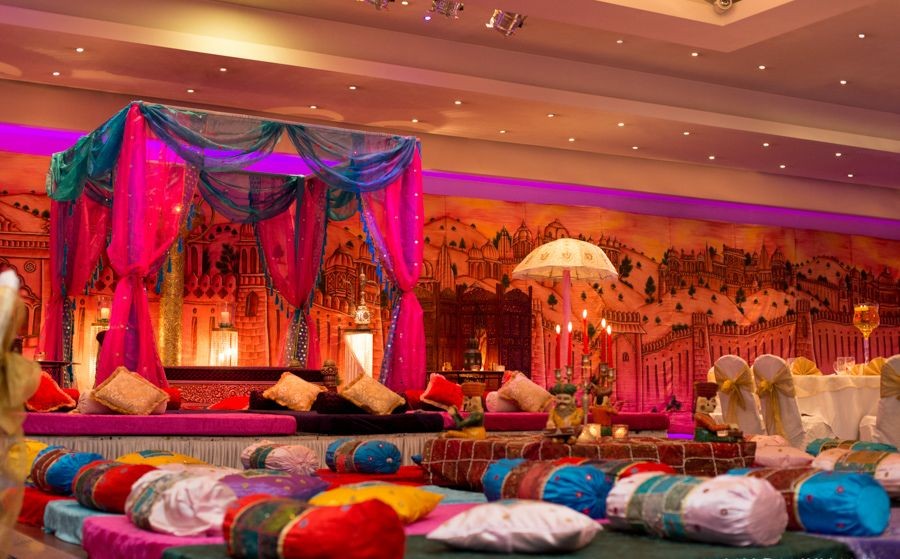
Will the new extension in timings of wedding functions prove to be effective?

Wedding festivities and I do not mix well. I’ve had an inherent fear of weddings ever since I was first introduced to them. Over the years, this deep-seated aversion has developed to an extent that I now dislike all that is associated with weddings -- the blinding lights, uncomfortable garb, unnecessary display of flowers, decked-up stage, and, inevitably for the individual guest, the anxiety of social exclusion and small talk -- which seldom ends very well in my case.
Essentially, if it can be said to be a part and parcel of the typical Pakistani wedding, you can be sure it doesn’t sit too well with me.
It has recently come to my knowledge that there is a specific word for this particular aversion: ‘Gamocedeiaphobia,’ or the fear of attending weddings and funerals. The use of one word to identify fear for both is ironic, to say the least. But fear it is. Pure, unbridled, fear.
So naturally, I was over the moon when a few years back, a ban was imposed on continuing marriage functions beyond 10 pm. Later, in 2016, a marriage functions law was passed by the then Punjab Assembly which stated that ceremony organisers and marriage hall owners were bound to wrap up by 10 in the night, failure to do which would inevitably result in imprisonment of up to one month and fine between Rs50,000 and Rs2 million.
Suddenly, the weddings seemed a little less painful, with the surety of them ending at a specific time, and getting out of the house seemed less daunting of a task than previously.
Therefore, my reaction to the recent one-hour extension of wedding hours all across Punjab was utter despair, to say the least. It was decreed to be for the sake of "easing the difficulty for women who, after spending a lot of time getting ready to reach the wedding banquets, arrive only to find lights already turned off." To me, it read as more of a life sentence than anything else.
Some good things, however, can be expected to come about naturally as a result.
Needless to say, the families of the bride and bridegroom will get some more time to indulge in the all-important rasms (rituals) and other wedding requisites. Wedding hall owners, too, must be happy now; they went to court back in 2010-11, terming the previous timing policy as being "inhumane, undemocratic and unjust," and one that "had destroyed the marriage hall business by resulting in greater energy consumption due to ceremonies being held in peak hours."
It will probably go down well with performers too, who had been demanding an extension ever since the initial decision was taken -- according to them people had stopped inviting them on weddings because of the time limitation. And not to forget, of course, women -- there now stands a greater chance of them ‘just’ possibly arriving on time.
However, even with these projected benefits, the future remains murky. Firstly, we must realise that in a purely Pakistani context, this extension in time limit will only mean an extension in the present way of doing things by another hour.
Simply put, 11 pm will conveniently become the new 10 pm in the minds of people, as they are bound to fall into laziness; in their minds, they have more time. The same women who took forever to get ready by 8 pm won’t get ready before 9 pm now. Guests who reached at 9 pm purely to record attendance, will now reach by 10 pm. Baraat will not arrive before 9 pm, and dinner won’t be served before 10:30 pm (if the heavens chance to smile upon us).
All of this will remain exactly the same, just extended by another excruciating hour. An hour that will mean more midnight traffic jams and retiring to bed in a corpse-like state at unspeakable hours of the morning. The halls will still put on their infamous lights spectacle right before the advent of the rukhsati, and everything will still go dark even before the first guest has stepped out of the wedding hall.
How can I say this with certainty? Well, I can’t obviously. But I’ve been around long enough to venture a wild guess upon how things happen in this country, and I do not see, in the near future, these weddings wrapping up on their own at a decent hour.
I also know this because I have, somehow, lived through a time when wedding functions did not end before one in the morning, and there was no upper cap on those agonising mehendi functions that dragged on until they began to resemble purgatory. I can relate to the sheer sense of helplessness surrounding one who simply does not see the point of such an elaborate (read ‘never-ending’) affair.
Weddings in Pakistan, to a socially uncouth person like myself, are nothing but a drag; gatherings too heavy with an unnecessary, almost unnatural, display of wealth, status and power. And to waste my whole day, for a few extra minutes of that agonising extravaganza, is a thought that is nothing but devastating.
So let’s hope things don’t turn out in this manner. That the baraats get there on time, that the dinner takes place exactly when it’s mentioned on the wedding invite. And most importantly, let’s hope that women finally manage to reach the wedding halls before the lights go out, hence setting things in motion.
No matter how improbable all this may seem at the moment, let’s still hope for the best, shall we?